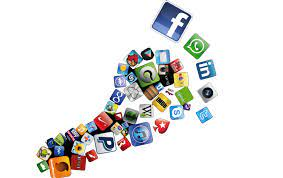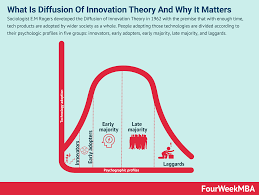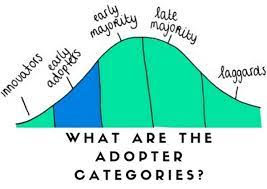I have learned a great deal about technology through this course.
I have grown up in a world where smart technology is everywhere.
I have never known life without technology because it has always played a significant role in both my life and the rest of society.
The world has benefited much from technological advancements, which have expanded, changed, and evolved over time.
I am aware that, over time, our planet has benefited from its advancement, despite the fact that its impact has had both positive and negative repercussions.
I've learned more about how involved technology is in our daily lives thanks to this course.
My Connection
I can't say whether my relationship with technology is positive or negative.
Everything depends on the day and the tasks I have to complete that day.
My daily smartphone screen time is 4 hours and 40 minutes on average.
Considering that I use my phone for both school and communicating with friends and family, I would think that this amount of time isn't too bad.
I consider my use of technology to be generally healthy.
I much prefer face-to-face communication than electronic communication.
I would argue that I did not have a positive relationship with technology throughout Covid-19.
I had to go to school electronically, so I was always on my laptop.
When I wasn't on my laptop, I was on my phone because that was how I talked to my friends.
I witnessed a rise in the amount of time I was spending on each social networking site, including Facebook, Instagram, and SnapChat.
The average amount of time spent on social media by Americans during COVID-19 was one hour and five minutes.
This is due to the fact that it was how individuals would maintain connections while utilizing social distance.
I started looking for activities I could do in my spare time instead of scrolling on my phone after realizing how much time I was spending using technology, such as playing with my dog or going to the beach.
Social Media
One of the most popular ways to communicate online and use technology is through social media.
Users can share information, movies, and ideas using it.
Additionally makes it possible for people to network with peers.
One software that enables users to advertise themselves is called Linked In.
For example, social media started to emerge as soon as technology could support it, such as in the early 1970s with the introduction of email and online chatting.
However, as time has gone on, more social media apps have emerged that allow individuals to exchange content.
For instance, YouTube allows users to upload videos, Instagram allows users to upload photos, TikTok allows users to upload brief videos, and SnapChat allows users to send pictures to each other and text.
However social media has had an impact on users' mental health.
With the growth of social media, all of the negative effects, including FOMO, sadness, body image problems, and anxiety, have become more prevalent in each of us.
Technology has a negative impact on mental health, and social media has made cyberbullying increasingly common.
Online platforms have seen an increase in verbal and physical abuse, particularly when done in an anonymous way.
It is seriously toxic for online bullying and private threats because there is easy access to direct communication with others.
Additionally, it is easier for everyone's private information to be revealed and made permanently available online.
Harassment, impersonation, robbery, and bank fraud rise as a result of this.
Nevertheless, this strengthened online security and aided in the development of better digital media laws.
I think I don't spend a lot of time using technology.
Instead of talking over the phone, I really prefer to spend time with people in person.
But I do use my phone to contact people more quickly and to keep track of my calendar.
Despite the fact that I don't use technology much, I always consider how much time I am spending on it.
Online Footprint
Knowing that whatever you put online or that someone else posts about you can be seen by anybody can definitely feel daunting at times when I consider my online footprint.
I think about every social media platform I have an account with like SnapChat, TikTok, Instagram, Twitter, Linked In, and Facebook.
I always go back and view my profiles and every I have uploaded or that I am tagged in to make sure that I am showing myself in a way that I am okay with others viewing.
As we discovered in class, once something is placed online, the platform automatically gains ownership of it.
You sign contracts and give up your rights when you join platforms and make accounts, sometimes without even realizing it, but most of the time you probably don't even read the agreements.
I am aware that I frequently only skim them.
Because everything you post online will follow you for the rest of time, it almost feels impossible to know how enormous your online footprint actually is.
That's why we need to be mindful about what we post online.
Final Thoughts
I feel fortunate to have technology as a resource in my life, but I also worry that it has actually harmed me by making things so much simpler rather than forcing me to find things out on my own.
Sometimes I think I've gotten so used to it that I don't do my own research when I have a question or don't understand something.
I'm fortunate enough to be able to simply search it up online.
When you stop to think about it, technology really does give us so many abilities.



















